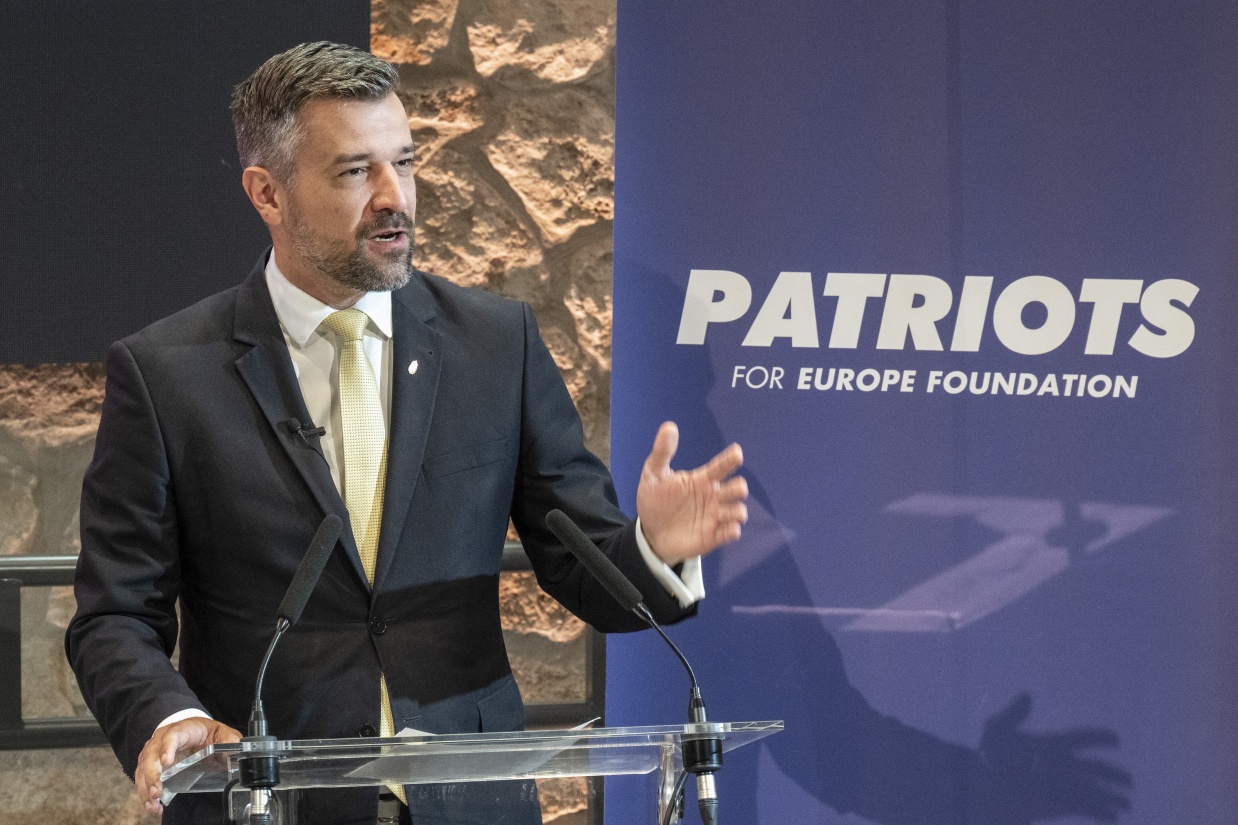
Brussels seeks to forge a new collective identity by invoking banal and nebulous concepts.Continue reading

“A federalist, globalist mentality prevails in EU institutions, which seeks to define the future of the EU along these lines as the only acceptable direction,” said András László, Fidesz MEP, on Wednesday.
The MEP made his statement to MTI following a conference organized by MCC Budapest, the Patriots for Europe EU parliamentary group, and the Polish conservative legal organization Ordo Iuris. At the event, a study entitled “A Great Reset” was presented, outlining two scenarios for an alternative EU treaty reform.
András László emphasized that many of the policies prepared and voted on by the European Commission and the European Parliament in recent years have taken the European community in a direction that leads to a dead end. In his opinion, there are misguided policies, such as migration and energy policies, and joint debt issuance, in relation to which “the EU seeks to impose majority decisions on dissenting Member States.”
In his view, this completely violates the principle on which the European Union was founded, namely that Member States should work together to find solutions to common challenges while protecting their national interests.
However, he said that there are fewer and fewer opportunities to do so, and that a change of direction is therefore needed – but the current institutional system in Brussels does not allow for this.
He emphasized that the current leaders in Brussels, led by the European Commission, do not even want this, because their goal is to move in one direction toward deeper integration with as few national powers as possible.
MEP László said that the study presented on Wednesday is about how the EU system could be changed in a way that better reflects the will of voters and the interests of national governments – without “dismantling the European Union.”
He pointed out that according to the study, there is a serious imbalance of power between the European Parliament, the European Council, and the European Commission. The Council, where governments are represented, has less and less influence on EU policies and decision-making, while the European Commission is increasingly dominating EU policy-making, he added.
Democratic legitimacy lies with the Member States, as citizens participate in national elections in much higher numbers than in EU elections. It is much easier to change course at the national level after an election than at the EU level, where it seems that no matter what citizens vote for, the EU continues in the same direction,”
he said.
According to László, it is characteristic that trust in traditional values and representation has weakened in the European Parliament and in the large Member States.
“Germany has had a grand coalition for years, and in recent times it has been exclusively a left-wing coalition. There has been a democratic reaction to this: new right-wing, patriotic parties have gained strength. Yet it seems that neither the French nor the German political elite is willing to respond to this,” he said.
According to the representative, if there is no clear political will in the large Member States as to the direction in which they want to lead their own future and that of the European Union, then the role of the European Commission and the EU institutions will continue to strengthen in this power vacuum.
Via MTI; Featured photo: MTI/Szigetváry Zsolt